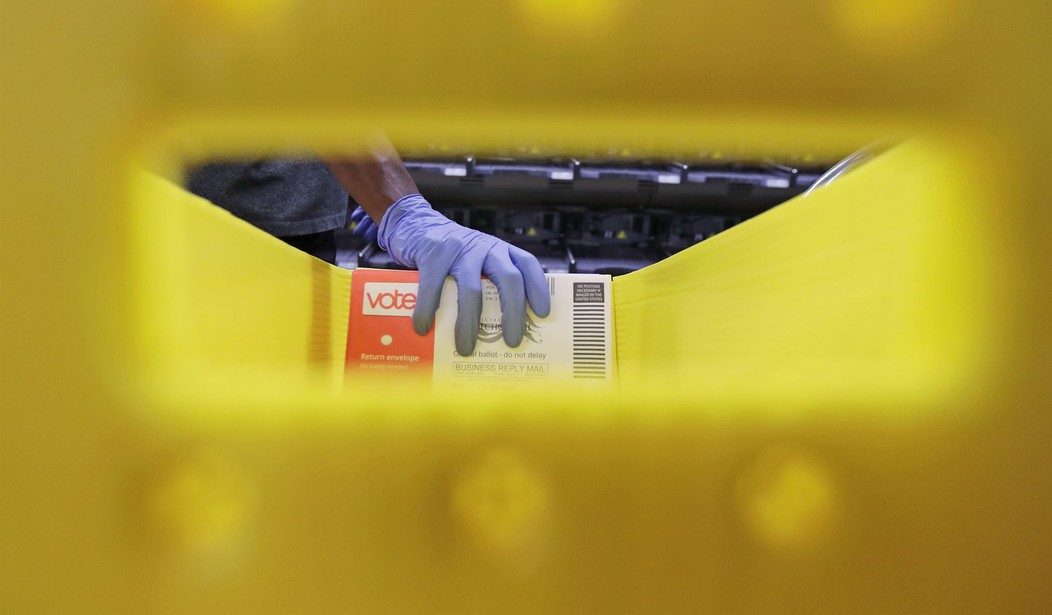I’ve written extensively about California’s elections, election laws, and specific problems with laws passed in 2016, 2018, 2020, and 2021 with the alleged purpose of “expanding access,” but which really open the door to massive election integrity issues and fraud. As we’re all painfully aware, numerous states have now adopted these practices, and Democrats in Congress would love to take them nationwide. While conservatives definitely need to play the game as it’s now constituted to win, it’s also important to fight these laws with whatever means available, and for Californians lawfare is about the only way to fight right now.
Thankfully, the people at Election Integrity Project California (EIPCa) are leading the fight. They filed suit against then-Secretary of State Alex Padilla, then-Attorney General Xavier Becerra, and 13 county registrars in early 2021 on behalf of their organization and 13 people who ran for Congress in 2020 (including RedState’s Buzz Patterson). Among the suit’s allegations are that there are insufficient safeguards to prevent ineligible people from receiving mail ballots (that the voter rolls haven’t been cleaned up, essentially), that the Secretary of State’s regulations prevent meaningful standards from being applied to verify signatures on vote-by-mail ballots, and that different votes received disparate treatment depending upon in which county they were cast.
EIPCa’s complaint referenced “700 affidavits signed under penalty of perjury from EIPCa-trained observers who consistently reported election workers not adequately verifying signatures and, in some cases, counting ballots without signatures,” meaning these are specific examples, not generic possibilities.
In August 2021 US District Court Judge Andre Birotte, Jr. dismissed the case against all Defendants with prejudice, ruling that neither the institutional plaintiff or the individual plaintiffs had standing, and that the court lacked subject matter jurisdiction. Plaintiffs appealed, and on November 3 a three-judge panel from the 9th Circuit Court of Appeals ruled that EIPCa indeed has standing and that the court has jurisdiction, and remanded the case back to US District Court to continue through the discovery process.
Mariah Gondiero, lead attorney, noted that getting past standing is a huge win.
“This lawsuit is monumental because it is the first to challenge the constitutionality of California’s election laws and procedures, and we are the first to get past standing. If we win, California will be required to enforce secure and uniform vote casting and vote counting procedures.”
The memorandum cannot be listed as precedent, but still had some verbiage that’s very favorable for those of us interested in secure elections and issues of standing for challenging legislation that frustrates our ability to exercise our constitutional rights.
Further, the complaint alleges that EIPCa was forced “to expend significant additional resources to facilitate observation of voting practices and document obstruction and irregularities.” An organization’s devotion of “significant resources to counteract the defendants’ practices,” Sabra v. Maricopa Cnty. Cmty. Coll. Dist., […] including “[d]iverted staff time,” see Fellowship of Christian Athletes v. San Jose Unified Sch. Dist. Bd. of Educ., […] constitutes “a concrete and demonstrable injury.”
Amazingly, Defendants argued that EIPCa’s injury was “manufactured” and that they chose to “spend money fixing a problem that otherwise would not affect the organization at all.” In other words, just ignore what’s happening and don’t spend money trying to hold us accountable to doing our duty to provide secure and fair elections, and then you won’t be affected.
Because the “emergency” regulations put forth in 2020 have now been codified, the injury will be ongoing and, as such, EIPCa will continue to be harmed and has standing to sue.
“And contrary to the dissent, the complaint plausibly alleges that it will need to continue to divert such resources in the future. According to the complaint, California has enacted legislation requiring every active registered voter in California to receive a vote-by-mail ballot, and the state has not developed procedures to ensure that only eligible voters will receive such ballots in the future. The complaint further alleges that California’s Secretary of State promulgated regulations that prevent meaningful standards from being applied to verify signatures on vote-by-mail ballots. According to the complaint, these inadequate processes give rise to “massive opportunities for both error and fraud,” and “[b]ecause the same or substantially similar laws, regulations, orders and practices are governing and will govern upcoming elections, the same situation will repeat” in future elections. We have long held that a threatened injury may constitute an injury in fact where, as here, there is “a credible threat of harm” in the future, Krottner v. Starbucks Corp., rather than a speculative fear “of hypothetical future harm,” Clapper v. Amnesty Int’l . . .”
During the discovery phase, EIPCa and the individual plaintiffs can now issue subpoenas for all records having to do with voter registration, purge of ineligible voters (or the lack thereof), records having to do with vote tabulation, etc, etc, which should be extremely interesting and potentially damning. What’s maddening is that what’s found could determine that certain races weren’t called correctly or that there was massive disenfranchisement or fraud, and there’s no remedy since it’s been more than two years – and will likely be years more before the discovery process is complete.
However, it could mean that in the end state legislators across the country will be restrained from enacting these types of election laws and will be forced to clean up voter rolls and provide meaningful observation and security in future elections. Perhaps there will even be temporary injunctions in the meantime in which California election officials will be ordered to fully comply with measures to prevent ineligible voters from casting ballots — as the complaint notes, California is not in compliance with portions of the NVRA relating to maintenance of voter rolls.
It’s important that conservatives across the country support this suit financially, because the ramifications will reach across the fruited plain.















Join the conversation as a VIP Member